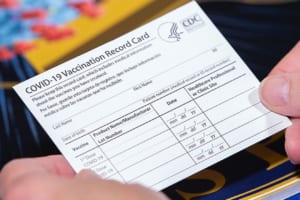A series of small moves concerning the Trump Administration’s immigration policy have recently been undertaken.
CNN reports the following actions made by the administration:
 Attorney General Jeff Sessions has issued a Decision directing the Board of Immigration Appeals (BIA) to refer cases for his review when such cases have issues relating to when there is “good cause” to grant a continuance for a collateral matter to be adjudicated. Under this Decision, the BIA’s decisions on the matter are automatically stayed pending the Attorney General’s review.
Attorney General Jeff Sessions has issued a Decision directing the Board of Immigration Appeals (BIA) to refer cases for his review when such cases have issues relating to when there is “good cause” to grant a continuance for a collateral matter to be adjudicated. Under this Decision, the BIA’s decisions on the matter are automatically stayed pending the Attorney General’s review.- The Commerce Department announced that it will include on the 2020 Census a question about U.S. citizenship.
- Immigration and Customs Enforcement (ICE) announced a new directive wherein immigration officers will no longer automatically release pregnant women from immigration custody but will instead require a case-by-case evaluation.
- The State Department proposed that visas applicants and alien registration be required to submit five years of identifiers for certain social media platforms. Previously, visa applicants were required to submit prior telephone numbers, email addresses, and international travel.
- Department of Homeland Security (DHS) confirmed that the White House is reviewing a proposal requiring immigration caseworkers to consider a wider range of factors to determine whether an applicant is likely to become dependent on public assistance. The proposal seeks to expand the term “public charge” as used in the Immigration and Nationality Act and to define the types of public benefits that are considered in the determinations. U.S. Law authorizes the rejection of immigrants if they are likely to become a “public charge.”
- The Department of Justice and the City of West Spring Palm Beach announced that it has reached an agreement regarding West Palm Beach’s Resolution Number 112-17. The City agreed to issue a memorandum stating its position that its local laws do not restrict information sharing with the DHS.
Immigration lawyers say that the greater scrutiny of visa applications have slowed down the process and have set the bar higher for long standing categories of visas.








